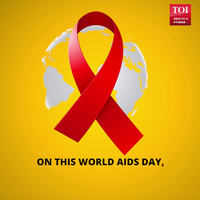‘One surgical strike won’t make Pakistan fall in line’
TNN | Jan 2, 2019, 03:46 IST
NEW DELHI: Prime Minister Narendra Modi on Tuesday said it would be “a big mistake” to think that Pakistan would “start behaving” after just one “surgical strike” operation, underlining that it will take a long time to rein in India’s western neighbour.
Talking about the surgical strikes conducted by Army’s Para-Special Forces against four terror launch pads in Pakistan-occupied-Kashmir in the intervening night of September 28 and 29, 2016, Modi said he knew he was taking “a big risk” with the cross-border operation.
“But I never care about any political risks to me. My biggest consideration was the safety of our soldiers (the Para-SF commandos) in the morning (of September 29). I had given clear orders that you all should come back (to the Indian side across the LoC) before sunrise, irrespective of the success or failure of the mission,” he said.
"In the morning, the information flow stopped for an hour. My anxiety increased. That time was extremely difficult for me...Then came the information that they have not reached back yet but two-three units have reached the safe zone, so don't worry. But I said I won't be fine till the last man returns," Modi said.
Though the surgical strikes were tactically successful in killing several terrorists, along with some Pakistan army soldiers co-located with them, there has also been criticism that they achieved little strategically since Pakistan did nothing to stop its active support to cross-border infiltration and terrorism.
Many military experts have also expressed unease at the politicisation of the surgical strikes, stressing that such covert military operations should not be unnecessary publicised to score points in domestic political battles.
The PM, in his interview to the news agency, said it was natural for Pakistan to deny that the strikes had even taken place to keep the morale of its armed forces intact. But there were some political parties in India who began to speak the same language as Pakistan. “Politicisation started from that point,” he said.
The PM said the surgical strikes were planned as there was a "rage" building up within him as well as the Army after 19 soldiers were burnt alive in the terror attack in Uri on September 18 that year. “The surgical strikes showed the might of our armed forces,” he said.
Talking about the surgical strikes conducted by Army’s Para-Special Forces against four terror launch pads in Pakistan-occupied-Kashmir in the intervening night of September 28 and 29, 2016, Modi said he knew he was taking “a big risk” with the cross-border operation.
“But I never care about any political risks to me. My biggest consideration was the safety of our soldiers (the Para-SF commandos) in the morning (of September 29). I had given clear orders that you all should come back (to the Indian side across the LoC) before sunrise, irrespective of the success or failure of the mission,” he said.
"In the morning, the information flow stopped for an hour. My anxiety increased. That time was extremely difficult for me...Then came the information that they have not reached back yet but two-three units have reached the safe zone, so don't worry. But I said I won't be fine till the last man returns," Modi said.
Though the surgical strikes were tactically successful in killing several terrorists, along with some Pakistan army soldiers co-located with them, there has also been criticism that they achieved little strategically since Pakistan did nothing to stop its active support to cross-border infiltration and terrorism.
Many military experts have also expressed unease at the politicisation of the surgical strikes, stressing that such covert military operations should not be unnecessary publicised to score points in domestic political battles.
The PM, in his interview to the news agency, said it was natural for Pakistan to deny that the strikes had even taken place to keep the morale of its armed forces intact. But there were some political parties in India who began to speak the same language as Pakistan. “Politicisation started from that point,” he said.
The PM said the surgical strikes were planned as there was a "rage" building up within him as well as the Army after 19 soldiers were burnt alive in the terror attack in Uri on September 18 that year. “The surgical strikes showed the might of our armed forces,” he said.
Download The Times of India News App for Latest India News.

































All Comments ()+^ Back to Top
Refrain from posting comments that are obscene, defamatory or inflammatory, and do not indulge in personal attacks, name calling or inciting hatred against any community. Help us delete comments that do not follow these guidelines by marking them offensive. Let's work together to keep the conversation civil.
HIDE